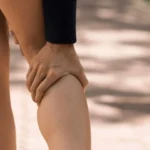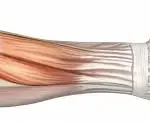Overview
Carpal Tunnel Syndrome (CTS) is a common, yet often debilitating, nerve compression disorder that affects the hand and wrist. Carpal tunnel syndrome develops when the median nerve—which supplies sensation to the thumb, index, middle, and part of the ring finger—gets compressed within the carpal tunnel, a tight space in the wrist formed by bones and ligaments. This compression can cause symptoms such as pain, tingling, numbness, and weakness in the wrist and hand.
Carpal Tunnel Syndrome can impact day-to-day tasks such as writing, typing, gripping objects, and even sleeping comfortably. At DMPhysios, a Noida-based clinic specializing in spine and sports conditions with a patient-centered rehabilitation approach, we understand the significant impact Carpal Tunnel Syndrome can have on quality of life. Our expert physiotherapists offer evidence-based, personalized treatment strategies to address this condition at its root.
Symptoms of Carpal Tunnel Syndrome
Carpal Tunnel Syndrome presents with a distinct set of symptoms, which can vary in intensity and duration depending on the severity of nerve compression:
- Numbness and tingling sensations, particularly affecting the thumb, index finger, middle finger, and one side of the ring finger.
- Pain in the Wrist and Hand: Pain may extend to the forearm or elbow in advanced cases.
- Weakness: Difficulty gripping objects, dropping items, or weakness in thumb opposition.
- Worsening at Night: Many individuals report that symptoms worsen during sleep or upon waking.
- “Shocking” Sensations: Sudden jolts or zaps of pain, particularly with wrist movement or flexion.
If left untreated, Carpal Tunnel Syndrome can lead to permanent nerve damage and muscle atrophy in the hand, particularly in the thenar eminence (base of the thumb).
Types of Carpal Tunnel Syndrome
While Carpal Tunnel Syndrome is generally referred to as a singular condition, it can be classified based on its onset and underlying cause:
- Acute Carpal Tunnel Syndrome:
- Rapid onset due to trauma, fractures, infections, or acute inflammation.
- Requires urgent medical attention.
- Chronic Carpal Tunnel Syndrome:
- Most common form, develops gradually over time.
- Associated with repetitive strain, systemic diseases, or poor ergonomics.
- Idiopathic Carpal Tunnel Syndrome:
- No identifiable cause; often related to anatomical predispositions.
- Secondary Carpal Tunnel Syndrome:
- Caused by conditions such as diabetes, hypothyroidism, rheumatoid arthritis, pregnancy, or obesity.
Understanding the type and cause helps healthcare professionals at DMPhysios in Noida devise an individualized rehabilitation plan that targets both symptom relief and long-term management.
Causes of Carpal Tunnel Syndrome
Various factors may play a role in the onset of Carpal Tunnel Syndrome. These include:
- Repetitive Hand Movements: Typing, assembly line work, and using vibrating tools.
- Prolonged Wrist Flexion or Extension: Such postures reduce the space within the carpal tunnel.
- Wrist injuries or fractures: These can change the structure of the carpal tunnel, leading to increased pressure on the median nerve.
- Inflammatory Conditions: Like rheumatoid arthritis that inflame tendons and compress the median nerve.
- Fluid Retention: Common in pregnancy or menopause, increasing pressure in the carpal tunnel.
- Medical Conditions: Diabetes, thyroid dysfunction, and other systemic diseases.
At DMPhysios, our therapists conduct a thorough assessment to identify and eliminate modifiable causes while addressing structural and postural contributors to Carpal Tunnel Syndrome.
Risk Factors
Carpal Tunnel Syndrome can affect anyone, but certain risk factors elevate the likelihood of its onset:
- Gender: Women are at a higher risk of developing Carpal Tunnel Syndrome, often due to having a narrower carpal tunnel structure.
- Age: Most common between ages 30 to 60.
- Occupation: Jobs involving repetitive hand motions, typing, or tool use.
- Genetics: Anatomical predispositions may run in families.
- Chronic Health Conditions: Diabetes, obesity, arthritis, and thyroid disorders.
- Pregnancy: Hormonal shifts and fluid retention during pregnancy can lead to swelling, which may compress the median nerve and trigger symptoms.
Understanding these risk factors allows DMPhysios to incorporate preventive and ergonomic education as part of the rehabilitation process.
Treatment of Carpal Tunnel Syndrome
Early intervention is key in treating Carpal Tunnel Syndrome effectively. The primary objective is to alleviate pressure on the median nerve and help restore proper hand and wrist function. Treatment approaches include:
Conservative (Non-Surgical) Management
- Activity Modification: Avoiding or altering tasks that exacerbate symptoms.
- Wrist Splinting: Especially at night, to maintain the neutral wrist position.
- Medications: NSAIDs for pain relief and inflammation.
- Steroid Injections: For temporary relief in moderate cases.
Surgical Intervention
- Reserved for severe or persistent cases unresponsive to conservative treatment.
- This procedure entails surgically cutting the transverse carpal ligament to relieve pressure on the median nerve.
However, surgery is not always necessary. In many cases, physiotherapy is the cornerstone of conservative care, especially when conducted under the supervision of trained professionals like those at DMPhysios in Noida.
Physiotherapy Treatment (Detailed) at DMPhysios
At DMPhysios, we emphasize patient-centered rehabilitation for Carpal Tunnel Syndrome. Our approach is tailored to the individual, ensuring optimal outcomes with minimal disruption to daily life.
Here’s a detailed breakdown of our physiotherapy interventions:
1. Pain Management
- Cryotherapy or Thermotherapy: To reduce inflammation and soothe irritated tissues.
- Accelerated Healing Therapy: As the name suggests, it is an advanced electrotherapy machine used to accelerate the healing process of the body, further soothing and relaxing the compressed and stretched structures of the body.
2. Manual Therapy
- Neurodynamic Mobilization: Median nerve gliding techniques to reduce nerve entrapment.
- Joint Mobilizations: Gentle mobilizations of the wrist and carpal bones to create space in the carpal tunnel.
- Soft Tissue Mobilization: Releases tight fascia or muscles that contribute to compression.
3. Exercise Therapy
- Tendon Gliding Exercises: Keeps the flexor tendons moving smoothly within the carpal tunnel.
- Nerve Gliding Exercises: Improves median nerve mobility.
- Stretching: Focus on wrist flexors, extensors, and forearm muscles.
- Strengthening Exercises: For grip strength and endurance once pain subsides.
4. Ergonomic and Postural Education
- Modifying workstation setup to prevent wrist strain.
- Teaching neutral wrist alignment during typing or tool use.
- Advice on activity pacing and rest intervals.
5. Taping and Bracing
- Kinesio taping for reducing inflammation and providing support.
- Night splints are used to keep the wrist in a neutral position during sleep, helping to prevent flexion and reduce pressure on the median nerve.
6. Patient Education
- Empowering the patient with knowledge on symptom recognition, self-care, and lifestyle modifications.
- Specific guidance for pregnant women, athletes, and office workers.
At DMPhysios, all interventions are continually reassessed and updated as the patient progresses, ensuring the most efficient recovery from Carpal Tunnel Syndrome.
Prevention of Carpal Tunnel Syndrome
While not all causes of Carpal Tunnel Syndrome are preventable, several strategies can significantly reduce risk:
- Practice Good Ergonomics: Maintain proper wrist alignment during work.
- Take Regular Breaks: Especially during repetitive hand activities.
- Use Correct Posture: Especially for the neck, shoulder, and wrist during tasks.
- Strengthen Supporting Muscles: Include wrist, hand, shoulder, and postural exercises in routine.
- Warm-Up Exercises: Before engaging in repetitive or intensive hand use.
- Manage Chronic Health Conditions: Keep diabetes, thyroid disorders, and other systemic issues under control.
At DMPhysios in Noida, we regularly educate our patients on lifestyle modifications to prevent recurrence and promote long-term hand and wrist health.
Conclusion
Carpal Tunnel Syndrome may seem like a minor inconvenience at first, but its progression can significantly impair hand function and daily productivity. Early identification, targeted treatment, and preventive strategies are essential for optimal outcomes.
At DMPhysios, a leading physiotherapy clinic in Noida specializing in spine and sports conditions, we prioritize patient-centered rehabilitation tailored to individual needs. Whether you’re an office worker, athlete, or homemaker, our expert team is equipped to guide you through recovery from Carpal Tunnel Syndrome with compassion, expertise, and the latest physiotherapy techniques.
Don’t let Carpal Tunnel Syndrome take control of your life.
Reach out to DMPhysios today for a detailed evaluation and a personalized rehabilitation plan. Our mission is to get you back to doing what you love—pain-free and stronger than before. Contact DMPhysios – Noida’s Trusted Clinic for Spine and Sports Rehab
Your recovery starts here.









